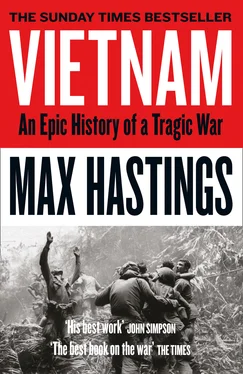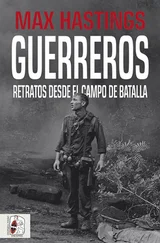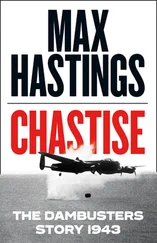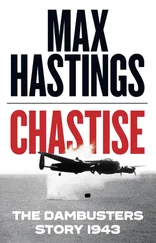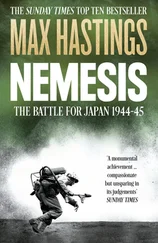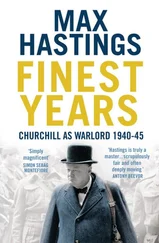As the year end approached, Navarre became aware that the Vietminh were deploying howitzers: on 31 December he reported to Paris that the camp might become indefensible. Yet through the first weeks of 1954, boredom was the garrison’s principal enemy. Col. Langlais returned from hospital with a heavily-strapped ankle, and rode about on a little pony. Patrols suffered a steady stream of casualties. Many men yearned for the Vietminh to attack, so that they might be hurled back into their mountain fastnesses, freeing the defenders to adjourn to the fleshpots of Hanoi. Yet some also were apprehensive: Lt. Col. Jules Gaucher wrote to his wife on 11 January: ‘Time passes slowly and nothing interesting happens. They tell us of hard times coming, that will shake us out of our routine. Rumour has it that we are destined for sacrifice.’
During the weeks that followed, the garrison launched several sorties against the enemy’s artillery, all of which failed. Attempts to interdict Giap’s supply routes from the air were also unsuccessful, partly because of the limitations of French B-26 Marauder crews: Langlais once found his positions undergoing an apparent Chinese air attack, then discovered that they had been hit by an errant Frenchman. This was unsurprising when many bombloads were released from twelve thousand feet. Far away from Dienbienphu, the Vietminh staged night commando attacks designed both to sap French air strength and to distract Navarre’s attention. Twenty aircraft, most of them precious C-47s, were destroyed in raids on airfields around Hanoi and Haiphong.
From December onwards Navarre and his colleagues had ample intelligence, shared with their superiors in Paris, to show that they faced the prospect of a full-blooded disaster. Yet they persevered because a lethal cocktail of pride, fatalism, stupidity and moral weakness prevented them from acknowledging their blunder. If the garrison of Dienbienphu had been evacuated, nobody outside Vietnam would ever have heard of the place. There would have been merely a local withdrawal of a kind that had become familiar. Navarre bears principal responsibility, but France’s entire political and military leadership deserves to share. It was the country’s misfortune to be governed and commanded by men burdened with the humiliations of the previous decade, and thus constrained in every decision by a yearning to restore national honour, revive la patrie ’s glory. In a spirit of defiance they perpetrated one of the least inevitable military fiascos of the twentieth century.
During the last week of January, the defenders were placed on high alert: intelligence reported that the Vietminh would launch their big assault within hours. Intelligence was right: that was the plan; but then Giap changed it. The foundation stones of the Vietminh commander’s recent successes had been meticulous preparations. To the frustration of his subordinates, Giap now decided that conditions at Dienbienphu were insufficiently propitious. His men were there, sure enough, but not the massive stockpile of artillery and mortar ammunition that he wanted. He postponed the scheduled assault.
His new, revised timetable meant that the impending battle must continue into the wet season, which in that region would be very wet indeed. Giap calculated that his own men, deployed on the hills, would suffer less than the garrison on the plain. In Paris a senior officer agreed, observing gloomily that by April, at the camp command post de Castries would be paddling in a foot of water: ‘We believed we could destroy three of the best Vietminh divisions. Instead the enemy has tied down an important portion of our forces, and it is he who manoeuvres around us.’ There was further discussion of evacuation, but such a course would have meant abandonment of huge stocks of materiel and almost certain extinction of the rearguard. Instead, Navarre reinforced.
For a further seven weeks, which seemed interminable alike to besiegers and besieged, the rival forces gazed at each other across the scrub and hills. Planes came and went. There were skirmishes beyond the perimeter, and a stream of distinguished visitors – military and political grandees, the novelist Graham Greene, the US Army’s Mike O’Daniel – all of whom departed unscathed. Meanwhile air attacks on the Vietminh supply line made little impact. Aircrew were inexperienced, and they dubbed their battered old planes les pièges – ‘the deathtraps’. Many of the 650 French airmen who died in Indochina were victims of human error or mechanical failure rather than of enemy action. The Vietminh learned that while raids were noisy, they inflicted surprisingly few casualties. A young man who survived a strike on his village wrote: ‘Bombing and shelling scared people more than it really hurt them … Repeated bombardments can make people less afraid.’ Moreover, around Dienbienphu aircraft faced increasingly fierce ground fire from Soviet-made 37mm guns. In December, fifty-three planes were hit more or less seriously. Thereafter, as the weather suffered its usual seasonal deterioration, pilots reliant on World War II navigation technology faced ever greater hazards, which caused a steady stream of losses.
From Navarre’s viewpoint, more alarming even than the battlefield story was news from Europe which overnight lofted the stakes at Dienbienphu: there was to be a Big Power summit conference; a negotiation. Soldiers sensed in the air a stench wretchedly familiar to Frenchmen: that of looming betrayal. Unwilling as they were to acknowledge that their own efforts to shoot and shell a path to victory in Indochina were failing, they professed now to see themselves about to fall victim to the machinations of politicians whom they despised.
In the US and Europe, dismay had been growing about the Indochina war. During the early years of the wartime Manhattan Project that created the first atomic bombs, British prime minister Winston Churchill displayed naïveté and even insouciance about its implications. A decade later, however, even despite increasing senility the old statesman was far more sensitive to the perils of unleashing nuclear weapons than were many Americans, including President Dwight Eisenhower. Churchill and his foreign secretary Anthony Eden understood that the newly-created H-bomb was not just another toy of war; that even to threaten its use in fulfilment of foreign policy objectives was a supremely grave proposition.
As the US administration pondered options, prominent among these was that of bombarding China, to punish Mao Zedong for backing the Vietminh. Such a prospect appalled Britain. Although only a few Americans – some wearing uniforms which bore generals’ stars – spoke explicitly of ‘nuking’ the Chinese, once conflict started there was no knowing where it would end. The British cherished a belief in diplomacy that the Eisenhower administration, increasingly contemptuous of its ally’s perceived timidity, did not share. American conservatives denounced as appeasement Britain’s willingness to engage diplomatically with China and the USSR.
The French exit process from Indochina was precipitated by a tense, difficult January 1954 foreign ministers’ meeting in Berlin. Vyacheslav Molotov, for the Russians, urged the convening of a conference at which communist China – hitherto excluded from international gatherings, at American insistence – would be represented. This would address outstanding issues in Asia, notably Korea and Indochina. US secretary of state John Foster Dulles balked. The notion of attending a conference with the communist usurpers of China was anathema. Yet Eden strongly endorsed the idea, with the backing of Churchill. For France, Georges Bidault concurred: the tottering government of which he was foreign minister was desperate to open a dialogue with Beijing about its support for the Vietminh. Dulles then grudgingly acquiesced. On 18 February the foreign ministers announced that a conference would begin in Geneva on 26 April, to which all interested parties would be invited, chaired jointly by Britain and Russia.
Читать дальше
